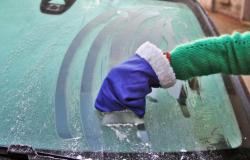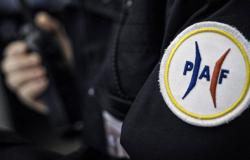It was a highly anticipated decision. In its latest recommendations concerning HIV and perinatal life, the High Authority for Health (HAS) gives its agreement for breast-feeding by women living with HIV. “I am so happy, I will be able to breastfeed my fourth future babycommented on his Instagram account Andréa Mestre, a personality committed to the fight against stigma linked to HIV. Now we finally have the option to choose whether or not to breastfeed! »
Each year, around 1,500 women living with HIV give birth in France. Since breast milk can transmit HIV, breastfeeding was not recommended until now. “In 2017, artificial breastfeeding still remains the only completely effective prevention of postnatal transmission and does not pose a risk to the health of the child in Northern countries, contrary to what is observed in countries with limited resources. Breastfeeding therefore remains contraindicated in France. explained the latest recommendations, published in 2018.
As early as 2009, the WHO recommended exclusive breastfeeding during the first 12 months of life in countries with limited resources, for mothers receiving ARV treatment and support to promote good compliance. The risk-benefit leans towards breastfeeding for these countries where access to safe artificial milk was not always assured. Then, several high-income Western countries followed. Among them Switzerland, Germany, the United States and even Australia. And now, France.
What do the recommendations say?
“The risk of transmission through breastfeeding is high in the absence of virological control in the mother. In a situation of prolonged viral suppression, the risk of transmission through breastfeeding is very low, making it possible to consider breastfeeding without being able to assert to date the notion ‘undetectable = untransmittable’ in this context. The risk would be 0.2% per month of breastfeeding (0.16% per month of breastfeeding if treatment was initiated before pregnancy).
Thus, if the antiretroviral treatment taken by the mother makes the viral load undetectable, breastfeeding is possible, under certain conditions:
- treatment must have started before conception or on 1is trimester of pregnancy;
- the mother must present a history of regular monitoring (compliance with treatment and attendance at visits);
- the viral load must be undetectable (by commonly used tests), that is to say it must be less than 50 copies of virus per milliliter of blood with at least 6 months of control;
- the mother commits to reinforced monitoring throughout the duration of breastfeeding;
- the medical team must have the capacity to carry out this reinforced monitoring of the mother and child.
“If one of the criteria is not met, breast-feeding is strictly not recommended,” writes the HAS.
The health authority also recommends limiting the duration of breastfeeding to 6 months – the risk of transmission increases with the number of months of breastfeeding – and advises exclusive breastfeeding if this method is chosen. The digestive mucous membranes of a newborn are indeed fragile and the introduction of other liquids or foods can increase the risk of HIV transmission. HAS also insists that breastfeeding must be the result of a shared decision with the medical team and must be addressed “systematically and early” during pregnancy monitoring.
Solid support expected by families
For Eva Sommerlatte, director of the Comité des Familles association and member of the HAS pregnancy and HIV group, this decision goes in the right direction. “This opens up the possibility of being supported when a woman living with HIV wishes to breastfeed. It is obviously much more reassuring to benefit from solid support to avoid transmission, but also for moral and psychological support and for breastfeeding to go well, advances the activist. We know that before this, mothers breastfed in secret without any medical support. ».
Eva Sommerlatte, however, describes “demanding” recommendations and a specific point, in particular: “it is proposed to continue infant prophylaxis for the entire duration of breastfeeding and up to 15 days after definitive cessation”writes the HAS. This decision is based on two elements: the lack of certainty on “undetectable = untransmittable” in the context of breastfeeding, and the concern to offer greater safety in the event of complications of breastfeeding (mastitis, etc.) and virological failure. The HAS specifies that prolonged neonatal prophylaxis must however be discussed in an RCP (multidisciplinary consultation meeting) and be the subject of a shared decision with the mother, and if possible with the father/co-parent, “based on medical and personal history”.
“France is an exception in offering prophylaxis to babies. Compliance with treatment by the mother and an undetectable viral load are essential. And, based on the data we have, there has never been mother-to-child transmission in this optimal scenario,” underlines the director of the Families Committee. “We hope that in the future we can also have the choice of whether or not to give PrEP to the baby,” adds Andréa Mestre.
Source: HAS, Instagram account of Andréa Mestre, Interview with Eva Sommerlatte






